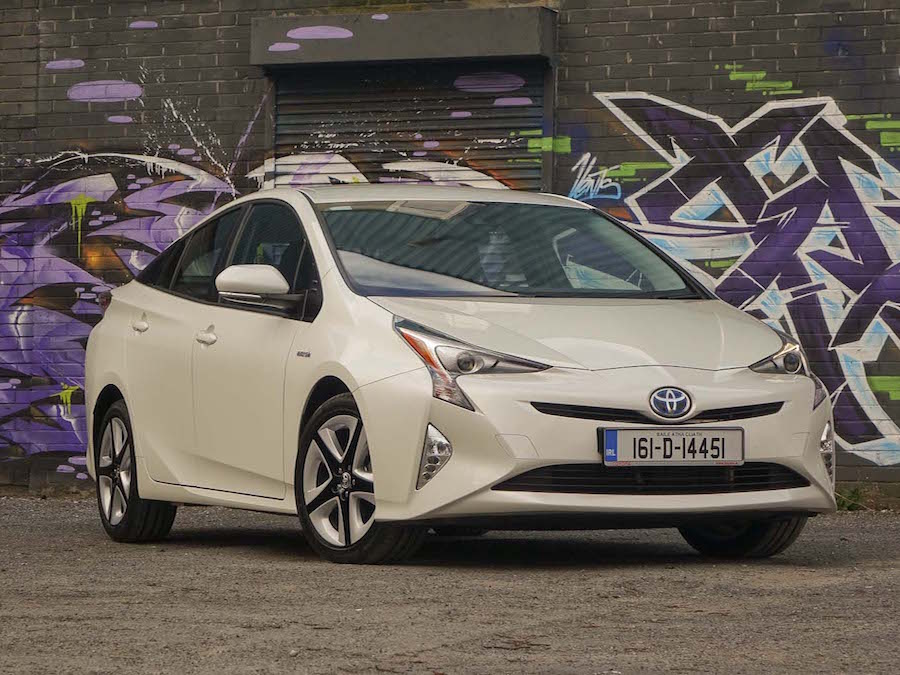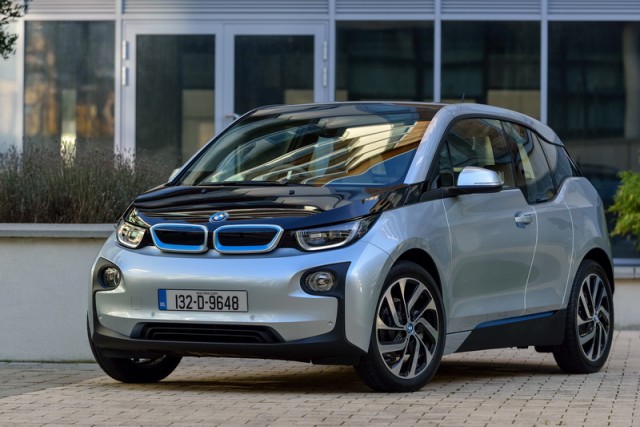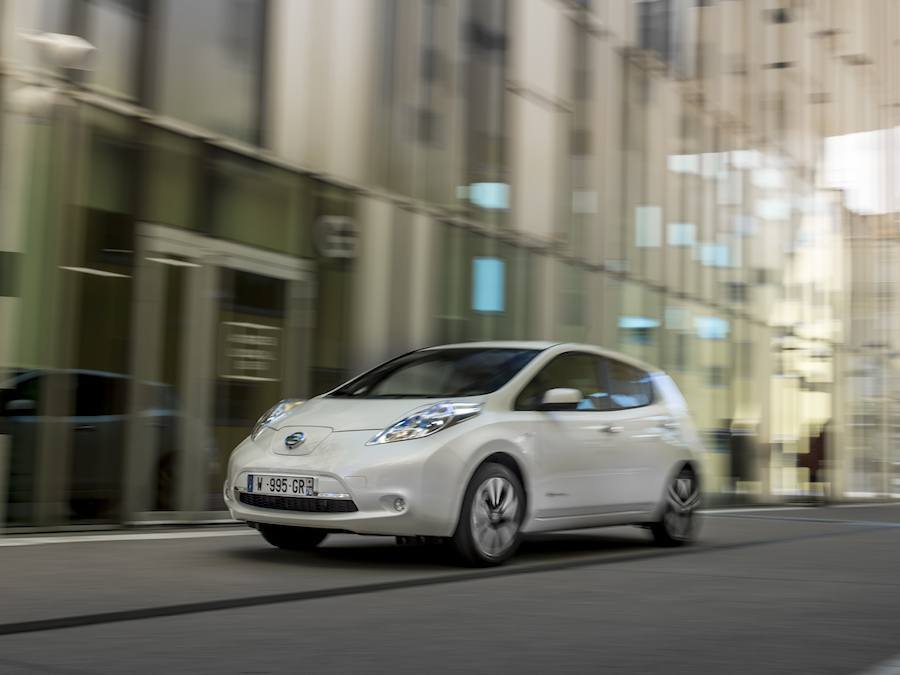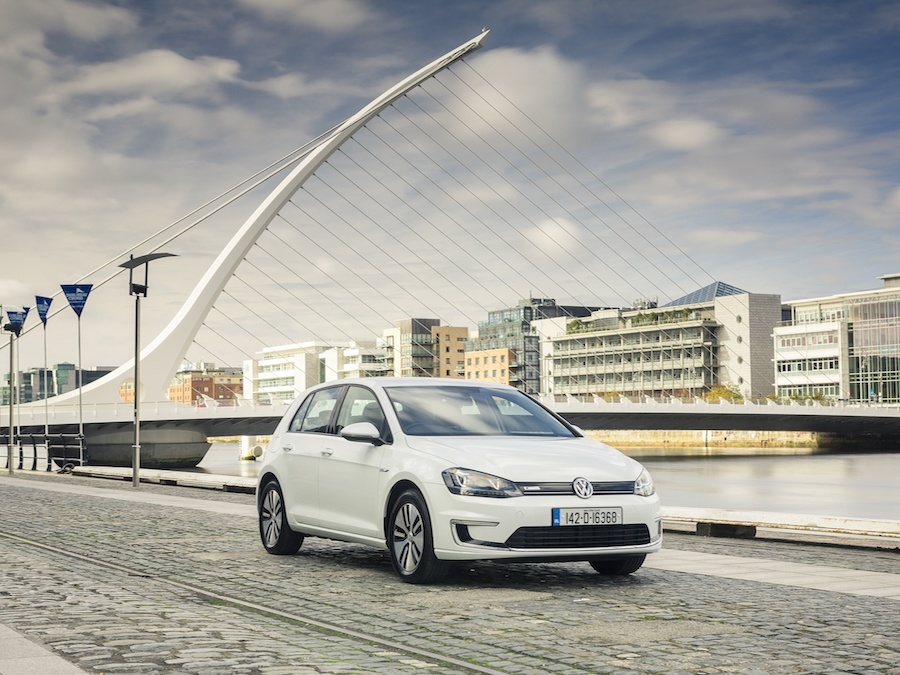Good: distinctive styling inside and out, great efficiency around town, not bad to drive
Not so good: will divide opinion with its looks, no plug-in charging option (yet)
Before I set out to write the main body of this Toyota Prius review, I chose the 'alternatives' below and had a little bit of a debate with myself. In the end I settled on choosing similarly priced electric and hybrid cars, as, in Ireland at least, diesel power still reigns supreme and I don't think many buyers that are eyeing up the likes of a diesel Volkswagen Golf, Opel Astra or Mazda3 will even consider a petrol-electric hybrid, never mind a full-electric car. And up until recently, I'd have tended to agree with them. Sure, there are plenty of Irish motorists that could live with the range compromises of all current EVs (Tesla aside), but for many it would be a compromise and why do that when conventional diesel/petrol power works just fine?
Likewise, I've never recommended the Toyota Prius hybrid to anyone. While I've always conceded that it does a fine job if more or less all your motoring is in an urban area, I personally couldn't live with the driving experience once the city limits are far behind and more performance is needed. As is well-documented on these pages, Toyota uses an electronically controlled continuously variable transmission (E-CVT) for its hybrids and without wanting to bore you (again) with how or why, it results in a disconnected feeling between what you ask the throttle pedal to do and the noise coming from the engine. Any meaningful request for acceleration is met by an instant shooting up of the engine speed (and noise), before there's the slightest hint of an increase in the speed of the car itself. CVTs are, however, very efficient, which is why Toyota has persevered with the idea and though the strategy is unchanged for the brand new Prius pictured here, the driving experience is much-improved.
Indeed, though the technical make-up of the Prius appears unchanged, every major component has been reengineered to be lighter, smaller and better at what it does. That applies to the 1.8-litre petrol engine, the electric motors (there are two, though one serves mostly as a generator and engine starter), the power control unit and the nickel-metal hydride battery. The net result is bigger improvements in efficiency and performance over the previous Prius than has been achieved in any other new generation model. In amongst all these changes Toyota casually mentions improving the software that controls the hybrid system and we reckon that's what gives the new Prius its edge. It uses the electric motor more than before to assist with acceleration at certain times, to reduce the CVT characteristic mentioned above. And it works very well. There's still a bit of a 'rubber band' effect, but it's not as pronounced, and what's more, the engine is far quieter than it has ever been so you don't notice it so much.
It is a little louder if you opt for the Power driving mode (as opposed to Normal or Eco), but that's to be expected, as it favours throttle response, and it came as a bit of a shock that this Prius is actually quite fun to drive. Now, I'm talking relatively here. The steering, though direct enough, is quite lifeless and the brake pedal still has a strange feel, but it all works well. It's the way the Prius clings on through a sequence of corners, crisply changes direction and soaks up bad roads with exceptionally good damping that really impresses. These are not things I've ever said about any other Prius and it's all down to a new directive from above to make the hybrid model more fun to drive.
To that end, the new Prius adopts a completely new chassis and there's been a lot of emphasis on a low centre of gravity, 25mm lower to be exact. It's thanks to the new 'Toyota New Global Architecture' (TNGA), which will be adopted by other models in time. There's also new rear suspension, using a double wishbone design, while the whole body structure is claimed to be 60 per cent more rigid - to the benefit of handling and comfort, as it allows the suspension to work more effectively at all times.
Complementing all those chassis changes is a new set of front seats, situating the driver a full 55mm lower than before. It's noticeable too, making the Prius feel (and I know this sounds odd) sporty - yet there's a great view out through a low-set windscreen. The rest of the cabin is of high quality and there's plenty of space in all seats plus useful oddments storage and a 502-litre boot. The dashboard and instrumentation may come as a shock to a buyer coming from a conventional car, but it all works well and takes very little time to get used to. The only aspect of it I didn't like was the shiny white plastic trim, but I will concede that it's of high quality and that's down to personal taste.
As is, let's face it, the exterior of the Toyota Prius; it's a strange looking car, more like something you'd expect to see on a motor show stand predicting the future of motoring than parked up outside Aldi with a boot full of shopping. But this may well be the future and for once it doesn't fill me with dread, even if a petrol-electric powertrain is still not as economical as a diesel one on a long journey. If you've always shunned the idea of a hybrid in favour of diesel, perhaps it's finally time to give it another go. The new Prius certainly deserves it.






































